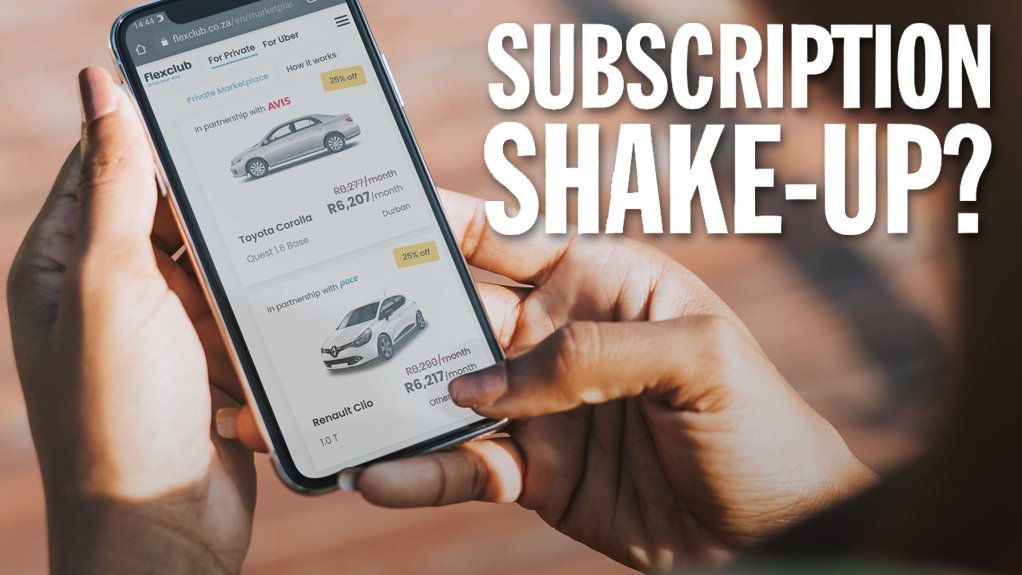When changing cars is like hitting the ‘exit’ button on a streaming service
Similar to how companies like Netflix disrupted the distribution models of walk-in video stores and DVD rentals, FlexClub’s new business model in the auto industry is causing a transition away from one of prioritising selling units to one optimising mobility experience.
While Netflix is today famous for its streaming service, it started life as a DVD subscription alternative to the physical video/DVD rental store. The difference then as now, is that whereas previously one paid to own or hire a unit, with the subscription you pay for access as and when you want it based on your monthly budget. That transition from selling products to selling a ‘mobility’ service is what the auto industry needs to embark on. In fact, this is already occurring as you hear more and more players referring to themselves as ‘mobility’ companies.
This is based on a realisation by consumers that they want a company not just to manufacture great cars, but to cater to their holistic mobility needs. We’ve already seen a considerable amount of consolidation among auto manufacturers and I now expect this to take the next logical step of vertical integration into what is a highly fragmented retail infrastructure for vehicles.
In the future, what is really going to upend the retail auto market will be the mass manufacture of electric vehicles (EVs), which is already on the way with entirely new distribution strategies. There are a number of small EV companies indicating they are coming to market with a subscription model as their primary distribution channel. This is a simplified distribution model that requires no dealership network, and we would ourselves see opportunities in that they could leverage the existing infrastructure of auto subscription firms like ourselves.

What we offer is a highly flexible model whereby we do not own any fleets but are the distribution network for a range of mobility partners, including rental companies – Avis, Barloworld, Europcar and Motus – and manufacturers. The model enables cars to be moved around at short notice. This can be accomplished by focusing on a range of cars that are in high demand and liquidity. Within that liquid range, subscription offers unparalleled flexibility and diversity of vehicle brands. The model also works for the business market firms or e-hailing drivers that either cannot get finance or don’t like to be tied into long-term finance agreements.
The only reason the average consumer doesn’t already acquire cars online to any extent – in the same way, an e-hailing driver does – is because the psychological commitment to the vehicle is so high. They want a physical experience of the vehicle before committing. Being far shorter term, subscription offers an entirely different emotional ‘cost’. With the former, there’s no turning back, whereas with the subscription you can return it with no hard feelings. This makes it easier to consider transacting online, particularly since the costs of finance, tracker, insurance, maintenance and more, are all bundled into one cost whereas with a car purchase you have to approach multiple service providers, at present.
To understand the true value of a subscription service it is important for people to do this exercise for themselves – by accessing each of those services independently and comparing that to our price, they will see the difference. Take a Kia Picanto 1.0 as an example. The car repayment for the vehicle is R4000.00. A service plan for this vehicle is around R700.00 per month. Fitting a tracking device should set you back R200 a month on average while the average insurance premium is R1010.00. In total, you can expect to part with about R5910.00 per month to run this Picanto with peace of mind.
FlexClub asks for R4826.00 per month for the same car, including maintenance, a tracking device and insurance with an excess of about R4,000. This is a saving of R1084.00, for a vehicle you can have a month to month, and return, whenever it suits you.
What subscription brings to the market is flexibility. Short-term rental also offers flexibility, but at a substantial premium. Subscription services are a hybrid between short-term rentals and long-term leases, making it possible for customers to subscribe to a temporary car ‘ownership’ without any long-term commitment and at a convenient all-inclusive monthly fee. The idea is that unlocking this segment will grow the overall market for mobility.
We’re not competing with vehicle bank financing, which remains a good product for those looking to keep the same car for six years or more. For everyone else, car subscriptions offer a superior hassle-free experience for the modern consumer.
South Africa is ripe for vehicle subscriptions and FlexClub has already more than 10 000 people from across the country who have applied for car subscriptions on the FlexClub marketplace.
For more information on FlexClub or to take up a subscription offer on your dream car visit www.flexclub.co.za

